Real Property Law
Interview: Jonathan Golding
By John (J.R.) Richards
Real Property Attorney
One thing that really strikes me about your online presence is that you have a wonderful website. What kind of effort and planning went into building this website?
When we opened our law firm in 2015, we thought we might not need a website – that LinkedIn might be sufficient. But we learned that once a client finds you on social media, he or she goes to your website. Prospective clients kept asking us why we didn’t have a website. So, we developed one. I like to say that our website took a year to develop – well, actually, two weeks – but they were a year apart.
Tell me about your branding and logo development.
I created our logo myself using an iPad and an app called InstaLogo Pro. It took me an entire weekend of playing around with various images and fonts, and then it just all seemed to come together. My goal was to create something new, light and jazzy, not something old and stodgy. I wanted the logo to portray us as a law firm for a new paradigm.
Who drafted the content for the website? How did you decide to do it?
We hired one website developer, Bruno Pisano of LAV1, to format and put the website together, and another website developer, Ben Schechter, to help us draft content. My own experience reading websites was that if the text was too dense, I stopped reading. So, we decided that no page should exceed a few short paragraphs.
Tell me about the challenges and expenses to build such a nice web presence.
Altogether, our website probably cost about $5,000. But the bigger cost was in being willing to give up many billable hours to take the time to really build it the way we wanted. When you’re just opening a new law firm, and you’re trying to make everything work, it’s difficult to put enough focus on the website. So, we put the website off for a while, tried making do with LinkedIn, and then found a window of time to really make the website the way we wanted it.
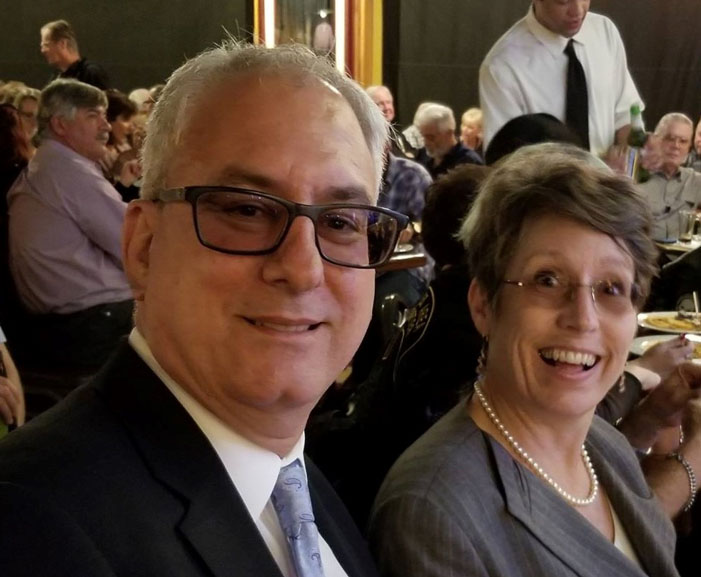
I know you through the CLA Real Property Law Section where you did some wonderful work…tell us what kind of work do you did for the State Bar/CLA and have you done with the Real Property Law Section?
Last March 28th, I helped present a program called “Blockchain and the Future of Real Estate,” which was a joint presentation of the CLA-RPLS and the Santa Monica Bar Association. It was a wonderful program about how a cutting-edge technology is changing the real estate world behind the scenes. I really get excited about how new technologies can increase reliability and productivity.
This term, we’re going to establish subsections of the CLA-RPLS and I’m going to co-chair the Litigation subsection. I’m looking forward to creating valuable content on hot litigation topics for the Litigation subsection members.
Have you always been involved in volunteerism? What other kinds of extracurricular activities have you done over time?
I’m one of those people who likes to volunteer. I was the President of the Santa Monica Bar Association Board of Trustees in 2011-2012, and a Trustee for a few years before. My partner, Rae Lamothe, was one of the founders of the Samoshel homeless shelter legal clinic, and I volunteered to give legal advice to the residents for more than ten years.
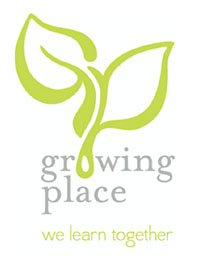
Earlier, when I was a very junior lawyer, I volunteered for a charity called “One Voice.” And then a few years later, when I worked in a big law firm as a senior associate, I volunteered to create a program to train junior associates. I didn’t get any billable hours credit, but I really enjoyed teaching. I also was a volunteer Chairperson of a pre-school in Santa Monica called The Growing Place when my son was a student there.
One of our missions here with CLA is to invigorate our membership in the LA area. What are your thoughts about that?
I truly believe that CLA has the state-wide bandwidth to provide education, networking opportunities and other services to the Los Angeles legal community that local bar associations can’t provide just due to geographic limitations. For example, when I go to CLA meetings and events, I get to interact with great lawyers from places like Truckee and Napa. I get to be an integral part of a very large and diverse legal community with people who have different perspectives on legal issues than I do. The CLA also has helped me expand my referral network statewide, which has made me an even more valuable resource for my clients. I can’t recommend CLA membership enough to other LA lawyers.
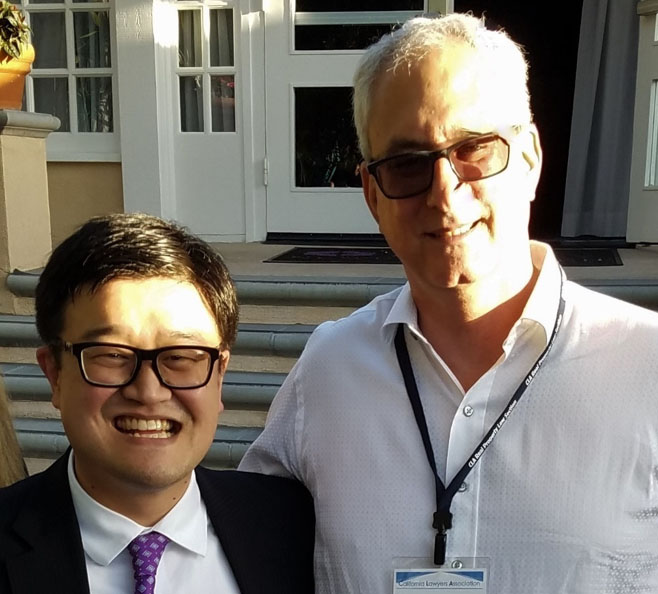
I see that your practice partner is also your true partner. How does that work?
Yes, Rae Lamothe is my law partner and my life partner. It works well for us, but we don’t recommend it for everyone. We happen to be compatible professionally, but not every couple is, and that’s okay.
Did you both just decide to make a law firm and break out? How did you develop your firm?
We had worked together at various times during the recession – first at Rae’s solo firm in Santa Monica when she needed help, and then at my old firm in Century City. We both left together in 2015 to start our own firm.
In our view, the legal world changed during the recession. Leaps in productivity – aided by advances in technology – made it possible for a small, lean firm to compete with bigger firms at a significantly lower cost. So, we created a technologically advanced firm in a less expensive location (and one that happens to be much closer to our home) and reduced our hourly rates and costs.
I see that neither of you went to the same college or law school. It makes me very curious as to how you met. Were you opposing counsel on a case? Sounds fascinating.
No. Actually, we met at a café in Marina del Rey seventeen years ago. I was having breakfast, reading the LA Times and minding my own business when a friend of Rae’s invited me to sit with them and talk about current events. One thing led to another . . . . People often ask us this question, but I’m always afraid that the actual story won’t be exciting enough to justify the anticipation. We always say that we’re the two most boring people on earth.
Has it been difficult to balance family life and work life? Tell me about those challenges. Has work invaded your, for example, vacation time?
We’re private practice lawyers. We work hours, not days. When we go on vacation, we take our computers and find a couple of hours a day (usually in the afternoon) to return calls and respond to emails. The work is important, as is family life, but we do the best we can to balance them. We have obligations to ourselves, our family and our practice, and we have to give all of them their due.
In your career, who were your most influential mentors and why?
My first mentor was a Customs and International Trade Attorney named Edward “Ned” Glad. I worked for his firm when I was a law clerk and really started to learn the ropes.
My most significant mentor was Paul W. Sweeney, Jr., who was a partner at my first law firm, Freshman, Marantz, Orlanski, Cooper & Klein, and subsequently the LA Managing Partner at K&L Gates after I moved on. Paul is the consummate litigator. Most of what I do as a litigator probably emulates him to an extent.
Who else’s work, as an attorney, have you grown to respect?
I respect the work of numerous attorneys I’ve litigated with and against who are “Gentleperson Lawyers” – that is, lawyers who understand that litigation can occur between and among lawyers who respect each other and the law, and who work efficiently and ethically to try to reach the best overall result to the benefit of their clients.
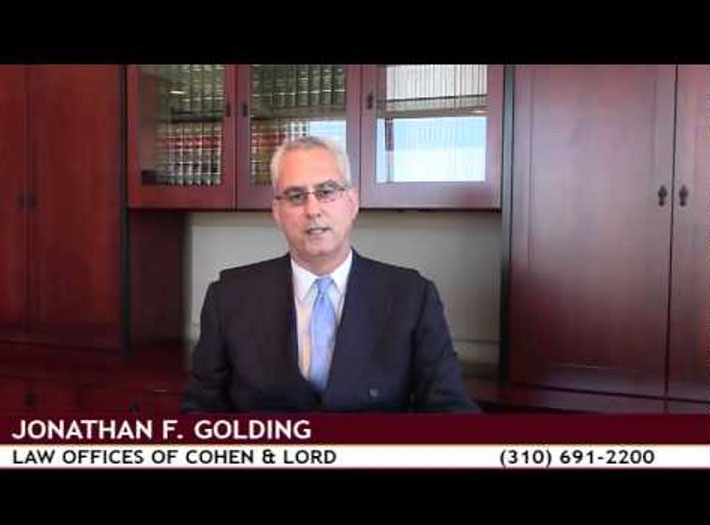
What is your favorite area of real property law?
I love construction litigation. I’m fascinated by the forensic side of defect and delay claims. I learn so much interesting stuff from my experts.
Undergrad or Law School, which is better? Why?
Nothing was better than Law School. It allowed me to have a practical application for my Philosophy undergraduate degree, and I feel like I really started to blossom and set myself apart.
B.A. in Philosophy? Why?

I’ve always enjoyed critical thought and debate. Philosophy changes how you think and reason – it also happens to be a system of thought and reason that’s similar to the one taught in law school. I have no doubt it gave me a leg up. My favorite is and was political philosophy.
The thing about philosophy is that in every stage in history, there has been great thinkers. Do we have a great thinkers today? Who might that be?
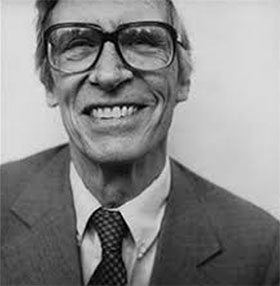
I think Elon Musk is a great thinker. That might seem controversial to some, but past philosophers often were able to solve complex problems by applying logical thought to disrupt common perceptions about what is possible. Elon Musk seems to be doing that with Tesla, Space X and The Boring Company.
From a purely philosophical standpoint, I’ve been a fan of John Rawls and his book “A Theory of Justice” since I was in law school thirty years ago. It’s the greatest work of thought in political and legal philosophy I’ve ever read.
I love the Euthyphro question of what is justice. So there is a lot of interaction between law and philosophy. How does your philosophical background affect your views of law? Is it just the discipline of analysis, or is there a deeper intellectual inquiry for you?
For me, philosophy is only valuable if it has practical applications that help solve real world problems. So, for example, John Locke’s “Two Treatises of Government,” espousing natural law theory and the social contract, was extremely influential in the creation of American Democracy – the most successful form of government in the history of the world. What was revolutionary thought on law and government in 1679, we take for granted now.
Although John Rawls’ “A Theory of Justice” presupposes hypothetical constructs where the creators of law and justice are in the “original position” under a “vail of ignorance,” which of course doesn’t actually exist, it allows us to try to understand and take into account how our conception of “justice” affects all of the diverse people and interests in our society. I think we still have a lot to learn in that regard.
I see you wrote for the Loyola Law School Law Review, what did you write about? Tell me about the rewards and difficulty of writing and participating in a journal?
I wrote a law review comment on a relatively obscure area of real property foreclosure anti-deficiency legislation – Code of Civil Procedure section 580a.
Law Review was both a great and terrifying experience. While I was on Law Review and writing my comment, I was married, working full time, taking evening division classes at Loyola Law School, and trying to hang intellectually with some of the smartest people I’ve ever known outside of the CLA-RPLS. I probably averaged about three hours of sleep a night for a semester. But there is no question in my mind that working on a journal in law school makes you a better legal writer, editor and collaborator. Writing and being published on a narrow area of the law is like lyrics from Don Henley’s song “The End of the Innocence” – “The lawyers dwell on small details . . . .” Yeah, we do.
What are some of the articles/publications you’ve written about real property?
I recently published “Landslides in California: What are Your Insurance Options When You Feel the Earth Move,” in the California Real Property Journal, Vol. 35, No. 3/4, at pp. 63-73. I hadn’t written a journal article since law school, and it was a really gratifying experience. I recommend it to every lawyer I meet who has something of value to say to his or her colleagues. And the California Real Property Journal is an excellent place to be published. But I may be a little bit biased.
So you were a partner at a law firm and had been there for 18 years. Tell me about the good reasons to stay at or leave a larger law firm?
If you like, trust and respect the other lawyers you work with, then stay. For me, the potential money you might get elsewhere can’t make up for the satisfaction you get in the everyday work environment. But if that’s not the case, or if you feel like you’re being held down unfairly, then leave. We each should feel obligated to reach our potential and also be able to balance our lives.


